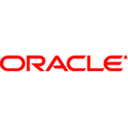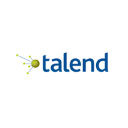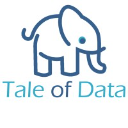Data Management Platform (DMP) software: purchase guide
What is a Data Management Platform?
Definition
The DMP solution allows you to collect, unify, segment and analyze data from all your channels and information systems (e.g. data, CRM, call center...). In this way, you leverage your customers' in-depth knowledge, improve the engagement, and return on investment of your campaigns. You bring together the worlds of customer marketing (CRM) and online advertising (display) to combine knowledge and foster a better customer experience.
From product marketing to individualized marketing using data
Over the past few decades, marketing has evolved a lot and its maturity has not ceased to grow, from mass marketing (product marketing) to event marketing, to finally arrive, to individualized marketing and whose interactions with customers are made, in an increasingly real-time and contextual environment.
Customer journey data, even anonymous, is the fuel for your future marketing actions. Why deprive yourself of the ability to collect, unify, operate and analyze this data in depth to better understand behaviors and uses and adapt your strategy accordingly.
DMP (Data Management Platform) solutions make it possible to collect data relating to the customer journey but are also able to match the anonymous user and the authenticated user. The Data Management Platform also allows you to develop the uses on this data, through the connectors available as standard but also by integrating with your existing solutions.
What are the features of DMPs?
Data management platform is a business solution for marketing departments, which aims to collect, unify, segment, execute and analyze the results of marketing campaigns. DMPs act as a true unified management and execution center for marketing strategy:
- Collection of customer journey data
- Rationalization and unification of data
- Audience segmentation
- Execution of marketing campaigns
- Dashboards and reports
How to choose a DMP solution?
Selection criteria
DMPs often do everything on paper but much less in reality. To choose a DMP correctly, it is, therefore, necessary to make a comparison after tests by asking the editors to commit to the functionalities they offer.
The number one choice of a DMP is its ability to unify all of the company's marketing and sales data despite the complexity of the information system. Then it is a question of being able to set up useful, profitable and large-scale marketing actions. For example, some platforms are not in a position to propose truly omnichannel actions.
The cost of a DMP
The price of a DMP depends on the marketing and commercial power it can develop. It takes $25,000 and $50,000 /year to set up a good quality DMP.
Who uses the Data Management Platform?
DMPs are used by companies with large volumes of data who are interested in utilizing a more industrialized and automated way. These companies are often historical players in the consumer goods sector (transport, retail, food, e-commerce, etc.). There are currently about a hundred DMPs active in France; it is a relatively young tool in the world of data analysis, marketing and customer relations. Banks and insurance companies will also use DMPs because they collect a lot of valuable but unused data (simulating a loan application, visiting a branch, transferring money, increasing purchases, etc.). The DMP will enable them to address their customers' needs in a very relevant way.
In general, we can say that DMPs are used by companies that have significant resources and possess a lot of data.
What is the interest of a DMP tool?
The DMP mainly makes it possible to internalize and unify all marketing data in its information system. This not only reduces costs but also opens up very important opportunities in terms of individualized marketing, which is a major trend in customer relations:
- Acquisition of new customers
- Customer loyalty
- Make the link between the different channels (especially between online and offline illustrated by the ROPO effect: "Research Online, Purchase Offline")
- Detect correlations and new information
- Create user segments
- Access data without a technical team
- Improve and optimize customer knowledge



















